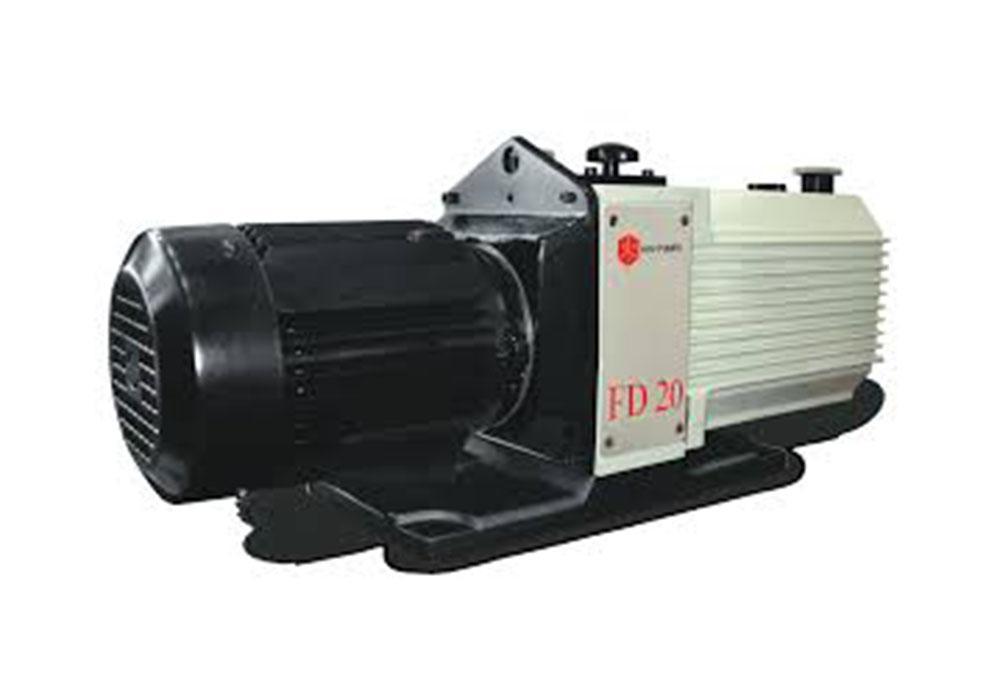In science, business, and HVAC systems, vacuum pumps are helpful. Popular vacuum pumps are oil-sealed. It works well and can reach high pressures. Oil plugs make oil sealed vacuum pump durable. Using the correct vacuum pump oil will keep the system and pump working.
Choosing the appropriate vacuum pump oil is crucial. This article explains hoover pump oil and how to maintain it for optimal performance.
Understanding Vacuum Pump Oil and Its Importance
Oil for hoover pumps is more than just a grease. This is a key part of how oil-sealed rotating vacuum pumps work. It’s useful for many things, such as –
- It helps make a tight seal inside the pump so the hoover stays strong.
- Oil reduces friction between moving parts. So they don’t wear out rapidly.
- It gets rid of the heat that the pump makes.
- Getting rid of Pollutants: It gets rid of dirt and water that could hurt the pump otherwise.
Use the wrong oil and your pump may break. Vacuum pump oil selection is critical.
Important Vacuum Pump Oil Facts
Here are some vacuum pump oil facts –
1. What Kind Of Pump It Is And How It Works
There are different kinds of oil that different cars need. The oil must have a high vapour pressure and not flow backwards for oil sealed spinning high vacuum pumps to work. But some industrial pumps may need oils that are made in a plant for heavy-duty use.
2. Oil Viscosity
The viscosity of the oil in the pump tells us how well it moves and locks. If the oil is too thick, it could push back and get too hot. If it’s too thin, it might not close and spread out right. Follow the width number that the maker gives you at all times.
3. Vapor Pressure and Boiling Point
Vacuum pump oil should have a low vapour pressure so that oil vapours don’t backstream back into the vacuum chamber and mess up the process. If the oil’s boiling point is high, it doesn’t change when it gets hot.
4. Oxidation and Thermal Stability
Air and heat break down vacuum pump oil over time. Better oils that don’t oxidise or break down quickly last longer and need less upkeep.
5. Moisture Handling Capacity
A lot of hoover machines have trouble getting water to work. Some oils are designed to separate water, while others are made to soak it up and spread it out. If the area where your pump works is wet, pick oil that can keep water away.
6. Contaminant Resistance
If the particles or gases that go through your pump are acidic, you can keep sludge and chemicals from breaking down by adding certain oils to them.
7. Synthetic vs. Mineral Oil
- Mineral oil is useful and has been used for a long time.
- Synthetic oil doesn’t break down over time, so it lasts longer and works better in tough circumstances. This is what should be done with oiled rotary high pressure pumps that you see in labs and workshops.
Common Types of Vacuum Pump Oils
Oil-sealed vacuum pumps need the correct oil to perform well and last long. Many oils are designed to stand high temperatures, be clean, and be chemically stable. Learn about the most popular vacuum pump oils and their uses in this article.
Single-Grade Mineral Oil
Mineral oil is cheap and can be used for many things, so a lot of people put it in their vacuums. Oil that has been refined is used to make it. Standard oil sealed rotary vacuum pump are often used in labs, food processing plants and HVAC systems. It’s brief, but it keeps things running smoothly. To keep the pump running, it must be changed more regularly than produced oils because it breaks down faster. It is true, but because it is cheap and easy to get, it is often used for things that won’t involve high temperatures or strong chemicals.
Synthetic Hydrocarbon (PAO) Oil
Chemical industries need manufactured hydrocarbon oil, also called PAO oil, for better protection against heat and oxidation. Mineral oil is not as good for this. That’s why this oil doesn’t turn bad. So sludge doesn’t build up, and the pump lasts longer. It can be used in oil–sealed rotary high vacuum pumps in the car, aerospace, and industrial fields because it works so well in hot places and with a lot of work. PAO oil is wax-free, so you can use it in any weather. Though it costs more than mineral oil, it lasts longer and functions better, saving you money.
Polyester (POE) Oil
POE oil is great for high-temperature jobs that don’t need to be done with chemicals. It’s often used in hoovers to keep the air cool because it doesn’t break down when it gets too hot. That it stays stable at high temperatures is a great thing about it. This means you can use it as a hoover for a long time. But POE oil likes to soak up water from the air, which can make it less useful and make sludge. This is how you should store and treat it so that it doesn’t break down too quickly. It’s not as easy to use as other types of oil because of this. It has this flaw, but the fact that it doesn’t break down when heated makes it a good choice for tough environments.
Silicone-Based Oil
Silicone-based hoover pump oil works best in clean rooms and factories that make electronics because it keeps contamination to a minimum. Because this oil has a very low liquid pressure, backstreaming is less likely to happen. When oil vapours go back into the hoover room and mess up the process, this is called backstreaming. The silicone-based oil doesn’t rust or combine with chemicals easy either. This keeps the place where you work steady and clean. You don’t have to change it or do other upkeep as often because it lasts longer than mineral and PAO oils. There are times when clarity and accuracy are very important, but it can’t be used because it costs more.
Fluorinated Oils (PFPE – Perfluoropolyether Oils)
Some things need fluorinated oils, which are also called PFPE oils. These oils are made to work in harsh chemical conditions and for certain uses. In other words, acids, solvents, and gases that are strong might not mix with these oils. They can be used in the lab, to make medicines, and in the kitchen. When fluorinated oils mix with air, they don’t change like regular hoover pump oils do. They are safe to use in places with both a lot of air and very high vacuums.
They can handle heat and rust better, so the pump will last a lot longer. The biggest problem with PFPE oils is that they cost a lot. Because of this, they can only be used in situations where chemical protection and stability are very important.
How to Maintain Vacuum Pump Oil for Optimal Performance?
- Regular Oil Changes: Follow the steps the maker gives you to make sure the thing doesn’t break.
- See what colour the oil is and how thick it is: You need to change the oil if it gets dark, milky, or thick.
- Pick the Right Oil: If you mix different kinds of oil, it might not work as well.
- Oil storage: Keep oil cool, dry, and covered to keep it from getting dirty.
Conclusion
A good vacuum pump oil seal is important for the performance and life of a vacuum pump. Performance is measured by thickness, air pressure, and cleanliness. If you use the right oil and care for your pump, it will work at its best. It will be up and running faster and for longer.


